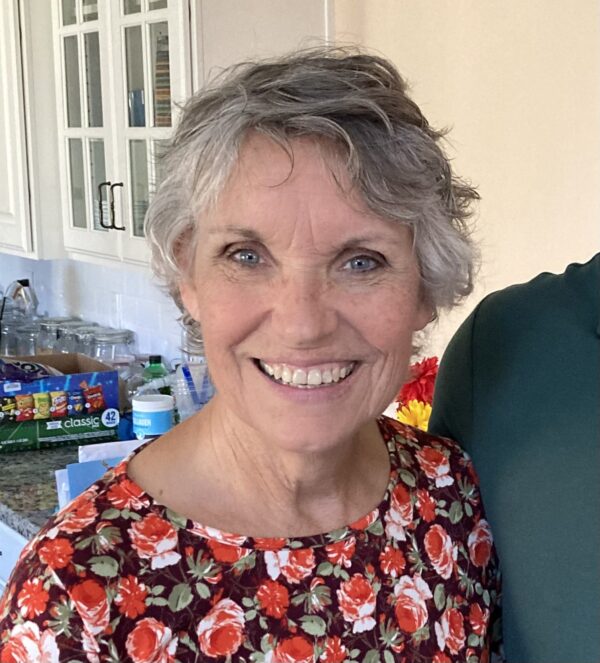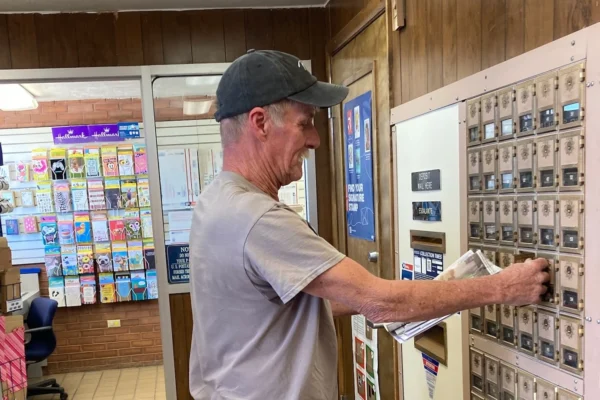I’d only lived in the town for a few months, and I had a box at the post office. Wasn’t I a local? I thought I was.
When I first met Fay Alvey, she was fully entrenched as the community scribe, writing skits, programs and poetry for every event. Her wit and wisdom entertained church, school and town audiences.
According to Fay, her husband, Aerial, kidnapped her as his 23-year-old bride and drove her here in a wagon at night so she could never find her way out of the valley and go back home. By the time I heard her tell the story, she’d lived here for more than 30 years. And then the punchline: “And I won’t be considered a ‘local’ until my headstone tilts east for five years.”
Of course, she was a local, as were all the other people who had boxes at the post office. I’d only lived in the town for a few months, and I had a box at the post office, so why would she say that? Wasn’t I a local? I thought I was.
Like a young child who sees the world through innocent eyes, I was a newcomer to the town, oblivious to the nuances of belonging. I believed I fit in simply because I adhered to the predominant religion and political party. I was married, and we were expecting our first child, aligning with the majority of the family status. My husband’s family had helped settle the town, so I was assimilated by default. I felt like I belonged, although I was new, while Fay was deeply rooted and didn’t feel like it. This paradox puzzled me.
Years later, after moving away and coming back, I accepted that Escalante was to be my home, so I was determined to make the most of it. I got involved, volunteering and working side by side with diverse members of the community, people I had little in common with and who didn’t fit the ‘majority’ status quo but whom I grew to admire and deeply appreciate. The more I knew about them, the more I realized how much we did have in common, if not in personal lifestyle choices, then with values of service. These new friends were busily grafting themselves into this community tree and growing deep roots of belonging.
Recently, I was jolted by a woman’s remark. She, who has lived here for many years, and her partner, who has been here even longer, claimed they didn’t belong. I was taken aback. With her charm, intellect and talent, this woman belonged, definitely a local. But she didn’t see it that way. Our perceptions were starkly different. It was a moment of profound realization.
It’s a lot like the saying, “Beauty is in the eye of the beholder.” I saw her as a local, yet she didn’t. She felt excluded; I felt she was included. It wasn’t as simple as looking at belly buttons: innies and outies. With belly buttons, the difference is clear. But with belonging, it’s a complex interplay of individual perception and community acceptance. Each individual’s feelings of belonging, or lack thereof, are valid and part of this complex paradox.
I frequently go to the post office and see a ‘tourist’ enter. I expect they will go to the counter and buy stamps, but I have been repeatedly surprised when they proceed to push a key into a lock and retrieve their personal mail from their own post office box. By the standard of mailbox ownership, they belong, yet I have never seen them before in my life. It is, after all, a small town. I wonder if they feel like they belong or not.
I spent some time this evening strolling through the cemetery. As I meandered up and down the aisles, I found the grave I’d been looking for: Fay Little Alvey. She died at the age of 86, almost 20 years after I first met her. I wanted to see if her gravestone tilted east in the years since she’d died, but the black marble marker was secured flat on a concrete base. 1913-2000; in my mind, I could see all she’d done for our town during the dash between those two dates.
Whether Fay was joking or not, in my opinion, she was a local who belonged, not just because she had a mailbox here and not just because she didn’t find her way out of the valley, but because of all she gave to the town. I thought of the woman who thinks she doesn’t belong. I invite her to be like Fay Alvey, not by thinking she doesn’t belong, but by contributing her talents for her fellow citizen’s benefit, meeting new friends, and realizing she does fit exactly where she belongs.
Your unique contributions can make a difference, too. You can help make your community a place where you feel like you are home by getting involved.
Can we redefine what a local is in our small communities? I suggest:
Local: Anyone who has intentionally chosen to live in their small town of choice as indicated by having a PO Box.
Local: Anyone who has gotten involved and uses their talents to enhance their community’s potential.
Local: Anyone who takes on significant roles of responsibility to make their town function and invests their resources of time and energy to make their town a better place. They understand historical circumstances that create current conditions and perspectives. These roles are not always recognized or appreciated.
Loco: Someone who is attracted to their new locale but then strives to change it to conform to where they came from, losing sight of the charm that brought them there in the first place.
If you don’t feel like you belong, maybe you don’t. Maybe the local culture isn’t a fit. That’s okay. Keep looking.
Maybe it’s a fit for you, but you’ve felt rejected or snubbed. Keep trying. You’re worth it. We always have options. Choose a different tribe in your small-town cosmos with its many interests orbiting and interacting.
You may not be the majority. Again, you have options. Learn and grow, adapt and listen. Your voice matters. Engage in civil dialogue. Help others understand your needs and perspective. And most of all, keep getting mail in your PO Box. In my opinion, you are a local.
– by Karen Munson
Feature image caption: Getting mail at the Escalante Post Office. Courtesy of Karen Munson.
Read more about moving to a small community in The Small Town Way We Speak by Abbie Call and Forward with Determination by Bradi Gates.

Karen M. Munson – Escalante
Karen is an associate editor at The Byway. She is fascinated and fulfilled by all things involved with writing. After graduating from BYU, she taught English at Escalante High School for three years. She pursues opportunities to write and support others in their writing. Karen has published three books with four more scheduled to be released in 2024. She and Reed are the parents of ten children and the grandparents of 35 grandchildren.
Karen is the author of the New Twist on Mental Health column in The Byway.

